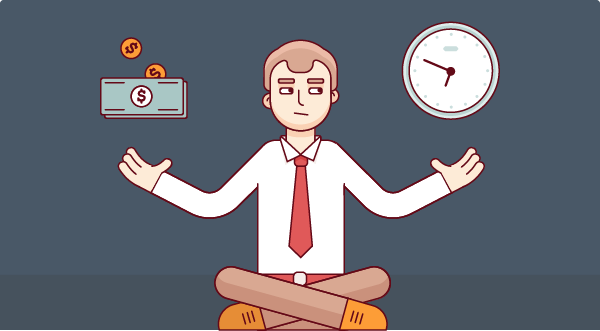Wil Schroter

Our Founder careers aren't defined by the size of our positive outcomes, they are defined by whether we've had one at all.
Therefore, if our outcomes are so important to us, shouldn't we first start with optimizing for the most likely outcome that will be meaningful to us? Is our idea more likely to become a $3 million business earning $1 million in profit or a $100 million business that could go IPO?
We need to start our journey, which implies an insane amount of tough decisions, aligning our path with outcomes that will not only be meaningful but those that we have the highest probability to achieve.
Optimizing for a Billion Dollars is Silly
To be fair, the "It has to be a billion dollars" is a mantra directly driven from the VC community, who has every reason to uphold that mantra. If I were a VC, I'd be saying the same thing, because that's how I make money.
But that mantra, when handed down to aspiring Founders, all of a sudden puts us on some artificial path of growth and outcomes that substantially increases our risk of losing everything. Said differently — we don't need a billion-dollar outcome — they do. Our lives could be changed by an entire spectrum of outcomes. Their lives are changed only by one. We're not aligned.
We can always Optimize Again
If we're so incredibly fortunate that we were able to create that $3 million business out of our idea, can't we just reset our goals at that point? Why wouldn't we fully optimize for the first achievable (meaningful) milestone, and then change those parameters (go bigger!) when and if we get there?
One of the things that we need to account for is that our early milestones ($250K per year of personal income) will change our lives. The following milestones ($500K, $1M, $10M) will change our lives as well, but only marginally more since the first money is where most of our living expenses are covered anyway. So we should optimize for each milestone progressively, relative to how important that next milestone is when it arrives.
Why bet the farm for $100 million if $1 million buys us 90% of what we'll ever want?
It Takes the Same Amount of Time
There's an argument that states "It takes the same amount of time to build a big business as it does a small business" which implies that if we're going to invest the time, we may as well optimize for a big outcome.
What that argument completely overlooks is the fact that the number of years of investment isn't the issue. It's a broken argument. The issue is whether or not those years yield anything to begin with.
What we should be saying is "If investing 7-10 years, what path would yield the highest probability to a meaningful outcome?" Taking that "big swing" may sound impressive, but if all we're doing is exponentially increasing the odds that we wind up with nothing, then what's the point?
My goal, fellow Founders, isn't to tell anyone whether they should build a big or small business. My goal is to get every Founder the most efficient path toward creating an outcome that actually happens.
In Case You Missed It
Optimize For Productivity. Working through peak productivity is easy. It’s the valleys that we’re concerned about. The key is to plan for and optimize the valleys so we can recharge effectively.
Don’t Work Long Hours, Work Efficient Hours. As Founders, we should stop being "long hours" champions and instead start being proud of how much we can do in as few hours as possible.
How Much Should I Be Working? (podcast) Wil and Ryan take a deep dive into the benefits of thinking quality and not quantity when it comes to your weekly punch card.
Find this article helpful?
This is just a small sample! Register to unlock our in-depth courses, hundreds of video courses, and a library of playbooks and articles to grow your startup fast. Let us Let us show you!
Submission confirms agreement to our Terms of Service and Privacy Policy.
Already a member? Login
No comments yet.
Start a Membership to join the discussion.
Already a member? Login
